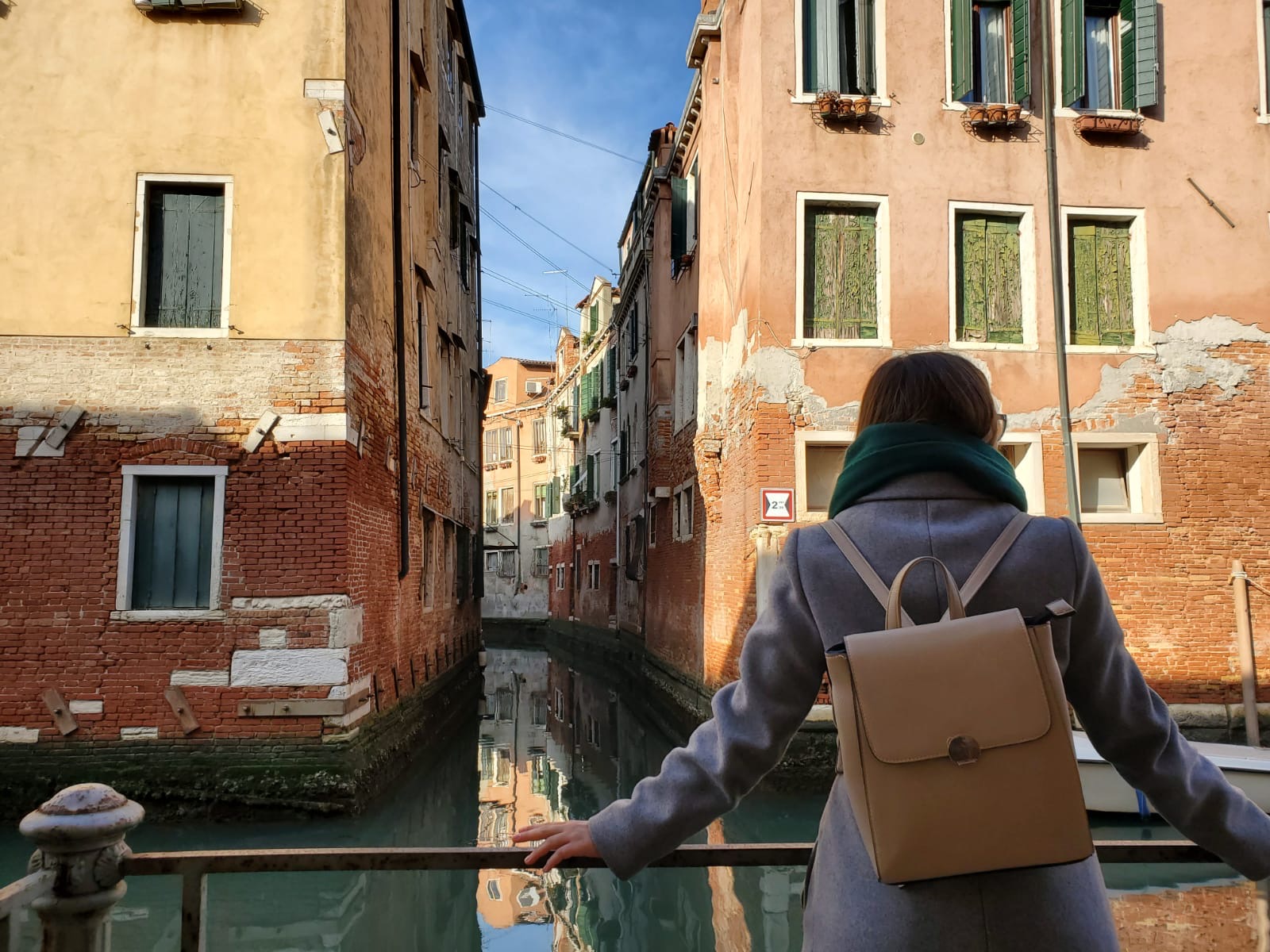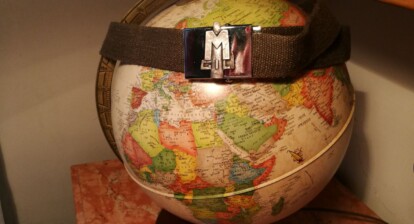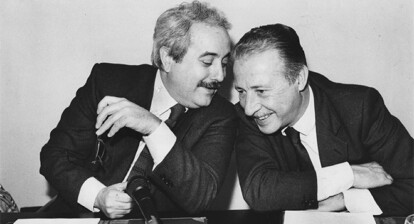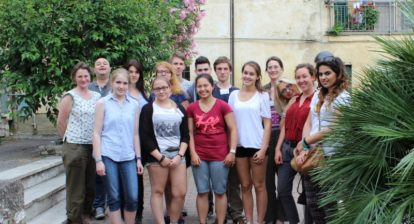Erasmus+ is often described as the cornerstone of the construction of Europe. Although the COVID-19 outbreak negatively affected mobility across Europe, universities managed to move to online teaching at record speed. But Erasmus+ cannot (yet) happen online. Liliana, a final-year student of international relations, returned from a six-month semester in Parma only weeks before Italy was locked down. She reflects on her experience with living in a small city and Italian rituals. #livingEurope! #livingParma!
As European countries’ record falls in active coronavirus cases, leaders are slowly carrying their countries out of lockdown and optimism is on the rise. While the world is praying for my beloved Italy, I reminisce about the Italian adventure I embarked on before the announcement of the lockdown. One year ago, when faced with the prospect of spending one semester either in the beautiful port city of Genoa or in Parma, I was advised by everyone and their mother to make a dash for the sea, and not forget my swimsuit. One year later, I’ve never been more sure that I made the right decision by opting for Parma, the gastronomic capital of Italy that does not figure prominently in most of the travel guidebooks.
Living in a Small Town – an Unexpectedly Pleasant Surprise
Having spent my whole life in Bulgaria’s capital, Sofia, it was difficult to imagine living comfortably in a city with only 190.000 inhabitants. In comparison, Sofia has more than 1,2 million inhabitants and about the same number of people coming there every day to work.
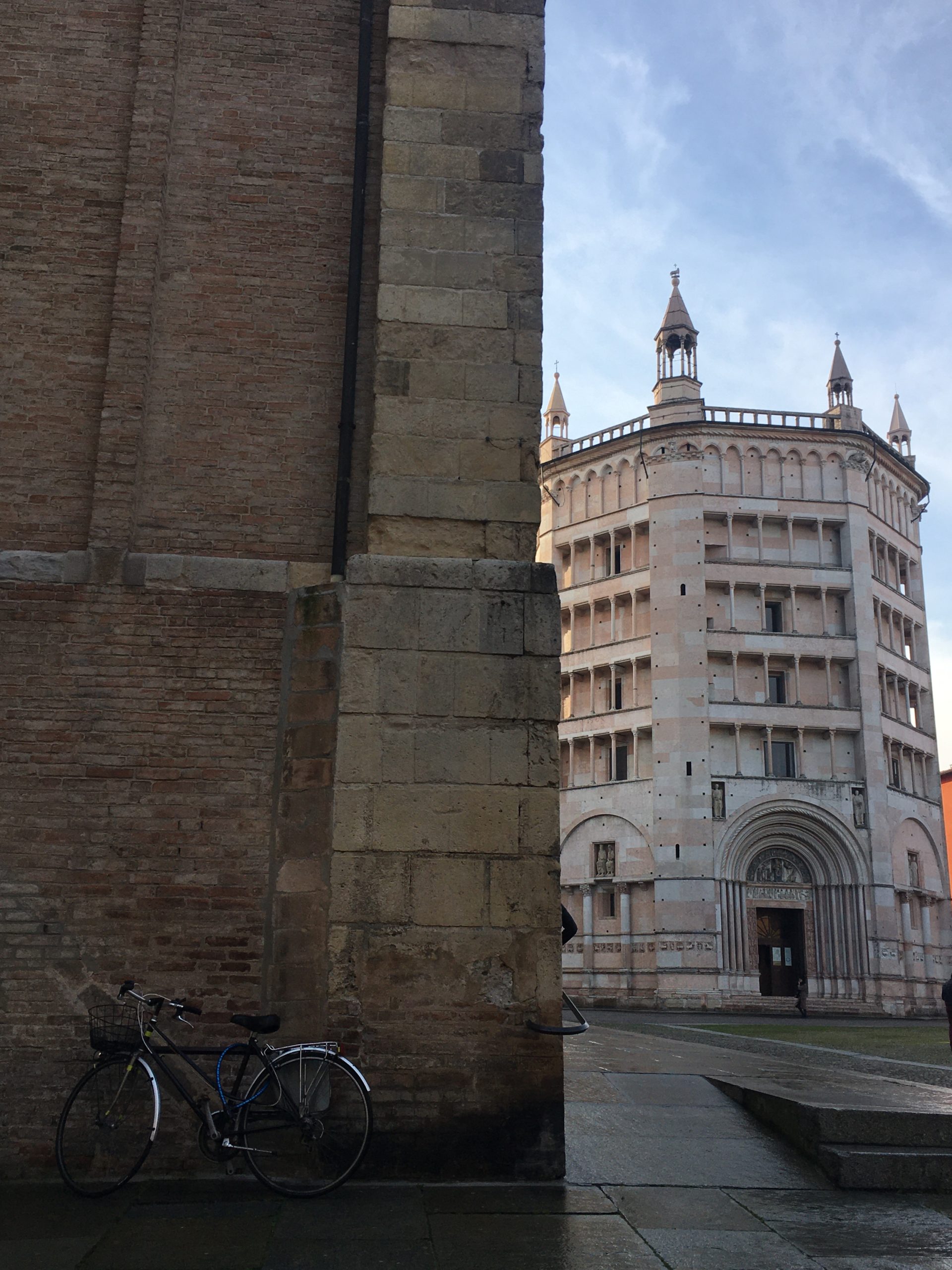
The Baptistery of Parma is a significant monument that marks the transition from late Romanesque to Gothic (photo: private)
I used to question how it would be possible to not get bored going to the same old places and crossing the same streets every day. But when I think about it, even in Sofia, which is so fraught with options, we all have our usual go-to places. There aren’t a lot of exciting ways to go from place A to place B.
The truth is that not once in these six months, I needed something that was nowhere to be found in Parma. If I wanted to enjoy more variety, Bologna was a 50-minute tram ride away – less than the time it takes to reach my university from my flat in Sofia.
Living in a smaller city also pushed me to make the most out of what’s accessible. Theoretically speaking, fewer options lead to a more monotonous living, but it’s up to us to use the available resources in a creative way. Personally, I became more mindful and caught myself experiencing joy by observing small things that don’t matter at first glance, and I would have easily ignored in Sofia – such as a newly erected monument or beautiful alleys I hadn’t seen before.
A Much Easier Life in Parma
In these six months living in Parma, I only used public transport a few times since everything was within easy walking distance. And that made life much easier.
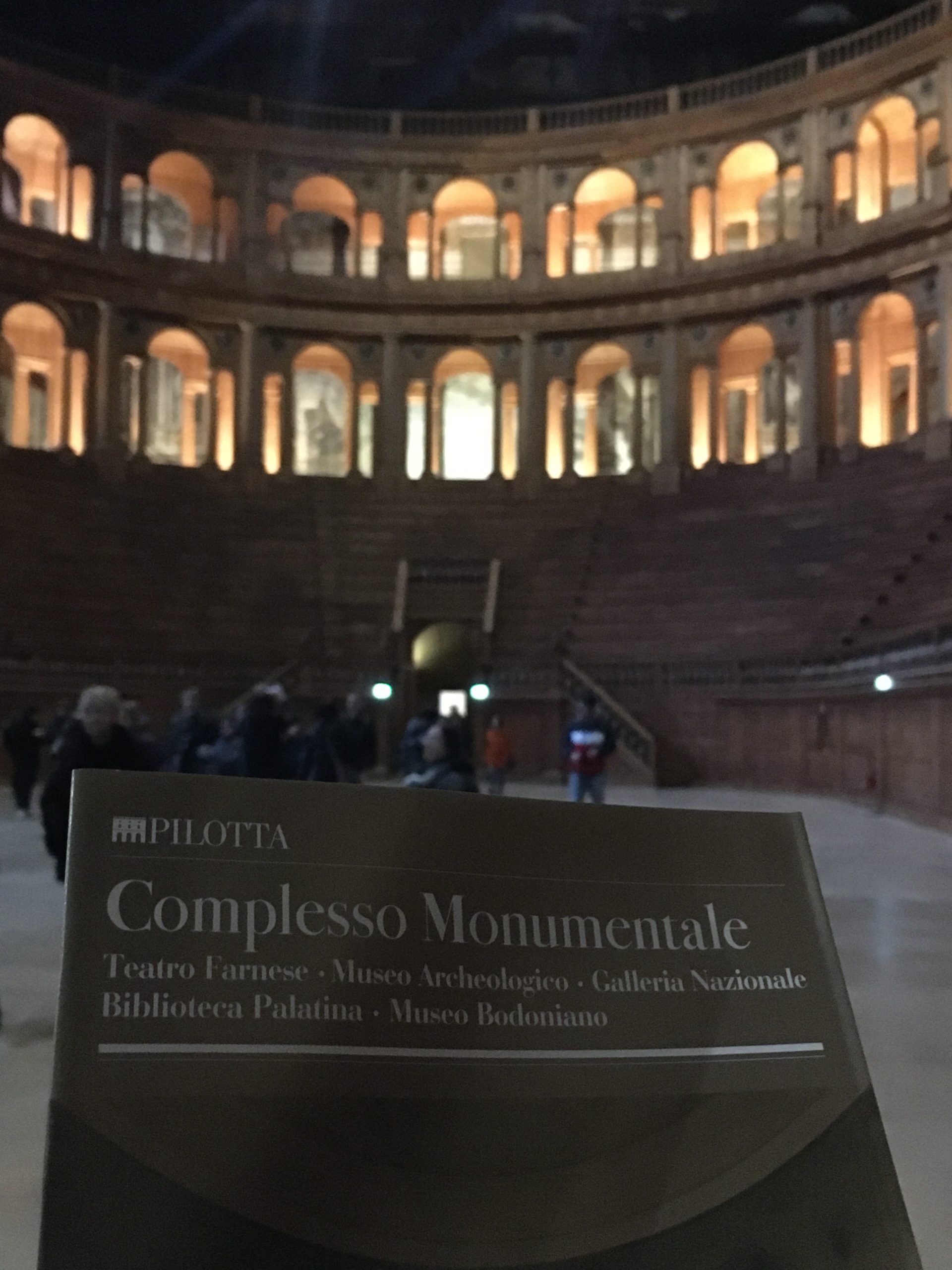
Inside Teatro Farnese, built in 1618 (photo: private)
Going out for a simple walk with friends in the Bulgarian capital sometimes requires planning a week in advance, schedule coordination, and taking into consideration the traffic and public transport. In Parma, on the contrary, you schedule it 20 minutes in advance, and you’re good to go.
While saving up plenty of time by not commuting for hours on end, one can easily spice up the routine by incorporating fun activities in this extra time and make life more diverse. A long time ago, the Universal Declaration of Human Rights proclaimed our right to freely participate in the cultural life of the community, but it was only in Parma that I had enough time to enjoy this cultural heritage on a weekly basis.
It turned out that after one semester abroad, what was once part of my daily routine became unbearable when I returned home: Commuting an hour every day to get to a certain place now gives me chills. „If only I were in Parma… I could have saved 45 minutes and gone for a run.“
My Italian ritual: Un caffè, per favore.
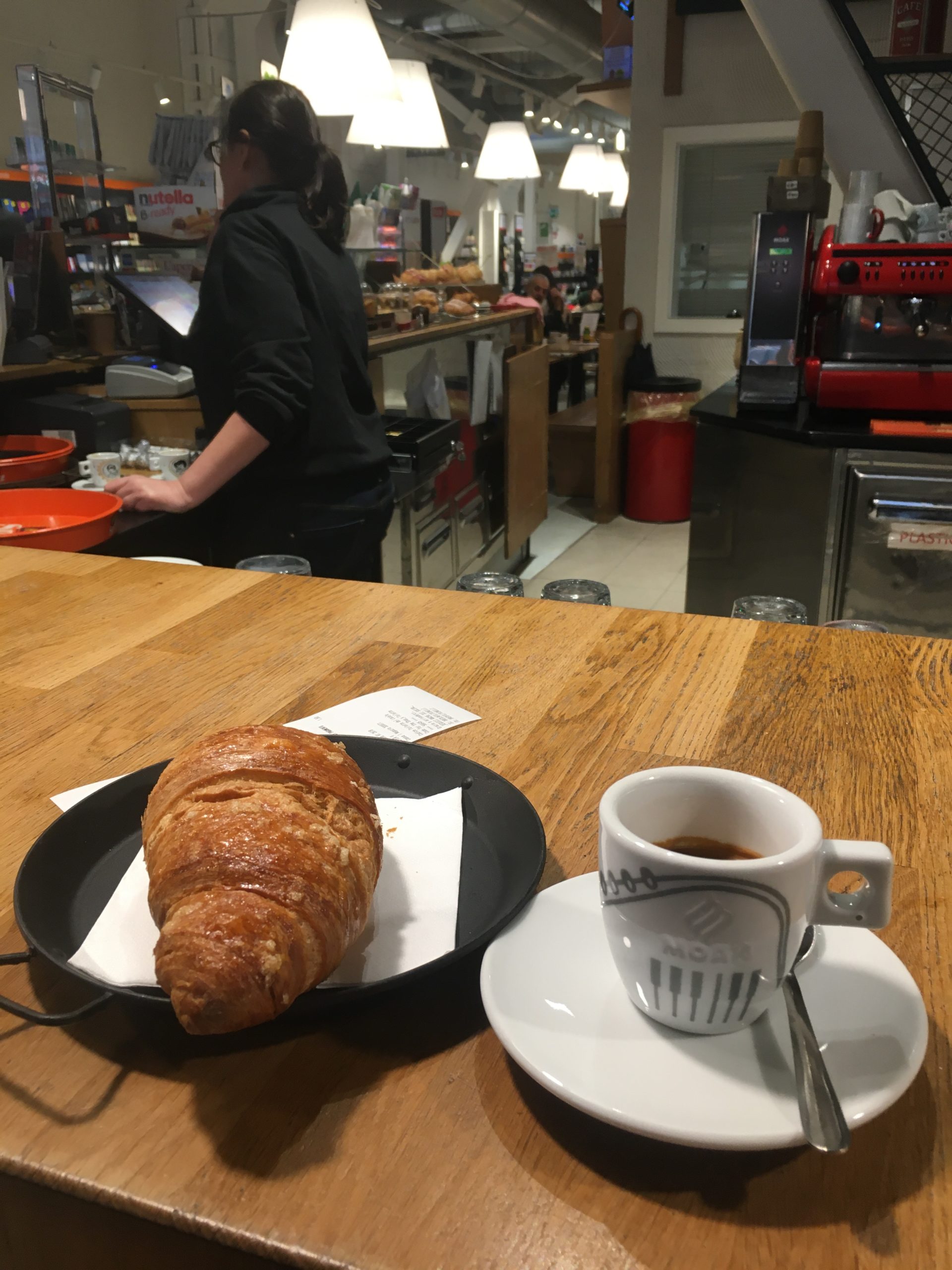
Morning routine (photo: private)
Еvery self-respecting Italian would admit that drinking espresso at the bar is a fundamental part of their day. Although the rich taste of coffee definitely presents a good reason behind entering a bar, I no longer drink coffee just to wake up my brain.
It’s the unparalleled coffee culture that was so fascinating to me. It has become such an inherent part of the locals that they were surprised by me being head over heels for it.
One of my favourite rituals quickly became stopping by my favourite cafeteria, which also happened to be a bookshop. There, I spend 30 minutes standing at the counter, enjoying the peacefulness of the mornings. What I quickly noticed was that locals didn’t just stop by for a drink. Quite frankly, I don’t think that all the customers were coffee lovers at all. The human factor was filling the place, not the aroma of coffee.
Entering the Barista’s World
Firstly, in most cases, the customer talks to the barista, who is also the owner of the place, while his family is running around. It gives you the feeling that you’ve entered their little world, which has a unique character, and you’re more than welcome to stay. It doesn’t take more than 5 seconds to gulp a shot of espresso, but you don’t simply go to someone’s home to leave the minute you’re done with what they serve you.
Secondly, not chatting with the people around or the baristas is almost impossible. While in the Balkans, we consider it unusual to invite ourselves to someone’s personal space and strike up a conversation out of the blue, I found Italians quite comfortable with impromptu dialogues. It must be in their blood to always find something interesting to say. And since the coffee at the counter is a faster alternative to the coffee at the table, locals around you are always coming and going. There’s always someone new who is eager to share their story, passions and dilemmas.
Yes, Parma might not feature in most of the travel guidebooks, but it features in my heart. Going on an exchange is an amazing privilege to explore ourselves, experience distance from what influences us on a daily basis and change our perspective. While one of the major problems that many travellers encounter is luggage capacity, for me, a truly enriching experience doesn’t require extra suitcases, but being open to broadening your horizon instead.
#LivingParma
1) Where to go as a foreigner to meet real Parma?
If you enjoy mouth-watering dishes made out of simple ingredients, Da Filippo is the place to be.
2) What surprised you the most?
The administration usually overlooks exchange students and sometimes sees them as a burden. That’s why the friendliness and hospitality of the staff of the University of Parma, who continuously kept going out of their way to meet all our needs, impressed me.
3) What annoyed you the most? How would you suggest another foreigner to behave, in order to avoid the same difficulties?
Punctuality is the soul of business, but not for Italians. Allow yourself to sleep in, try to be fashionably late and you‘ll still arrive before your Italian friend. Be patient and don’t take someone’s delay as a sign of disrespect.

